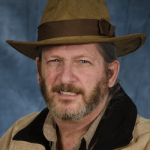I’d wager a guess that most of our readers are neither independently wealthy nor possessing of vast amounts of free time. I’d also venture that most of you know by now the importance of networking in your burgeoning writing career. The old phrase “It’s not always what you know, but who you know” may be a massive cliche, but there’s a reason for that: it’s true.
So we know we need to show up at conventions, meet our fellow authors and hopefully get some editors and agents interested in our manuscripts. But for the reasons I mentioned above, we can’t just go to every convention that trundles up on the calendar. What’s an aspiring writer to do? What is the convention that gives you the greatest proverbial bang for your literal buck?
For you science fiction and fantasy writers out there, I humbly submit the answer: World Fantasy Convention. I like to think of it as Worldcon’s business-focused little brother. Whereas Worldcon is a fan-oriented event also attended by professionals in the writing industry, World Fantasy is all business. You won’t find anyone wandering around in cosplay there (so as the title says, leave your Spock ears at home), just writers, editors and agents who are interested in networking. Old friends and business contacts are caught up with, new friends and business contacts are made and through it all new opportunities are generated.
World Fantasy 2012 was my first convention and it was just what I was looking for. The afternoon I arrived (the day before the convention started) I met urban fantasy author Kat Richardson in the hotel elevator, and she was kind enough to introduce me around to her circle. I chatted with Pat Rothfuss prior to his panel. At the mass signing I ran into and chatted with epic fantasy author Scott Bakker. I talked with Norm Sherman, editor of Drabblecast, Mass Effect writer and author of The Palace Job Patrick Weekes, and lest I forget, I met a certain Evan Braun, author and blogger for Fictorians, an encounter that ultimately led to the post you are reading now. Make no mistake, this is the highest density of industry professionals you are likely to find at any convention. If you are looking for a convention to maximize your opportunities for career advancement, World Fantasy Convention is where you need to be.
Now, some tips:
-This con should be all about socializing. If you aren’t in a panel, you should probably be hanging out around the hotel bar. People will congregate there day and night. Even if you aren’t a drinker, the bar is the central hub of socialization for the con. If not the bar, find the hospitality suite and if not the suite, find the dealer room.
-Make an effort to figure out where and when the various parties will be held. They are thrown by publishers, sometimes to promote a new book release, sometimes just as a social event. A lot of times they aren’t advertised, so you may need to know someone who knows, so here’s where your people skills come into play. Be a pleasant person that people enjoy spending time with, and they shouldn’t be reluctant to fill you in on the details.
-Maintain good situational awareness. Just because people are at the con in a business mindset doesn’t mean they want to talk 24/7. If you see that agent you’ve been anxious to meet off by themselves but they appear to be busy checking their email, leave them be. The last thing you want is to make a poor first impression and be memorable for all the wrong reasons.
-Likewise, pay attention in panels if you’re looking for conversational icebreakers. If you’re shy like me, finding an excuse for starting a conversation is the hardest part. If you have something to lead off with, like “I really enjoyed your urban fantasy panel today,” that can make things a lot easier.
-Convince some of your writing friends to go with you. Writers tend to be shy, so you can all psyche each other up into approaching people who might otherwise intimidate you.
-Lastly, remember to relax and try to enjoy yourself. There’s no reason you can’t have fun and do your career some good at the same time.
This year’s World Fantasy Convention is in Crystal City, VA (I know the link says Washington, D.C., but any native Virginian will scoff at that) from November 6th – 9th. If you decide to come and see me wandering around looking shell-shocked, feel free to say hi!



